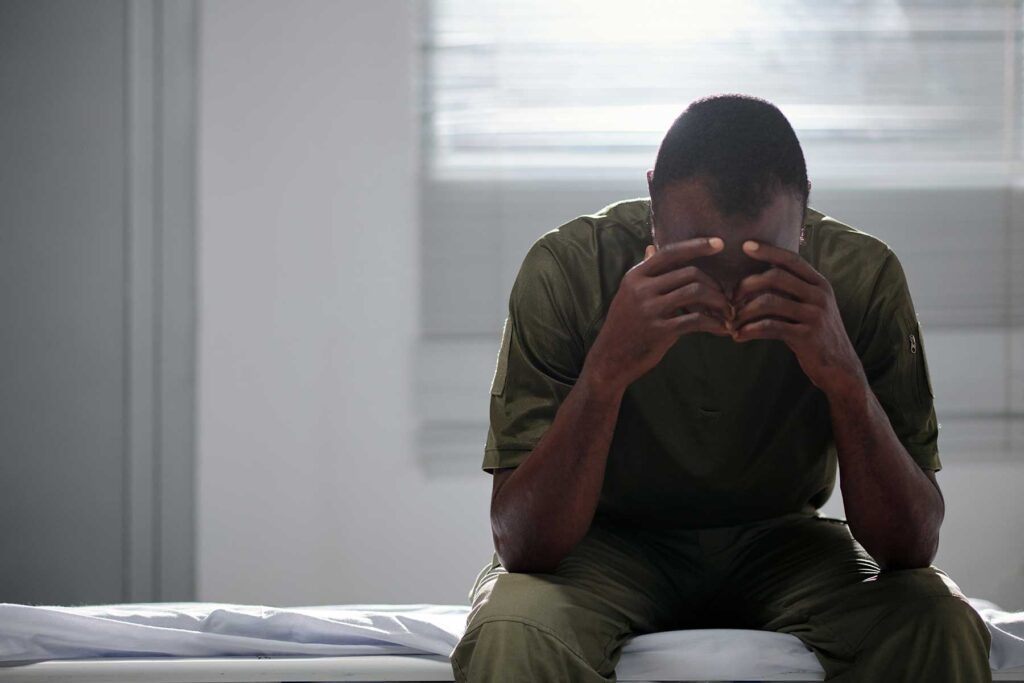Post-traumatic stress disorder (PTSD) and addiction are two closely related health conditions that can significantly impact mental health and life in general. The signs can sometimes be mistaken for one another, so you may not realize if your loved one is misusing substances, struggling with past trauma, or both. Everyone responds to traumatic events differently, so if you notice that someone you care about has not been themselves for a while, it may help to ask them what is happening in their life. This can open up an honest conversation about the severity of PTSD and how it can lead to self-medication with drugs and alcohol.
If someone you love has gone through a significantly stressful event, they may have PTSD even if they seem fine. Some people stuff their feelings down or use unhealthy coping mechanisms to numb the pain. Reach out to Promises Brazos Valley at 979.426.0086 to learn more about detecting PTSD in a loved one and how our dual diagnosis treatment program can help.
What Is PTSD?
A traumatic event causes post-traumatic stress disorder.
Common Causes of PTSD
Traumatic events can be one-time events or a string of recurring events. Some examples include:
- Being a victim of an assault or domestic violence
- Being involved in military combat
- Being involved in a severe car accident
- Being abused or neglected as a child
Post-traumatic stress disorder can impact people who experience traumatic events firsthand or witness them happening to someone else.
Common Signs of PTSD
Not everyone develops PTSD after a stressful situation, although many people have this condition without realizing it. Some symptoms of PTSD are:
- Having nightmares about the event
- Having flashbacks about what happened
- Having repetitive negative thoughts about the event
People with PTSD may notice changes in their mood, persistent anxiety or fearfulness, and difficulty sleeping. They may also feel like they are always on edge or waiting for something terrible to happen.
What Is the Link Between PTSD and Addiction?
There is a strong correlation between post-traumatic stress disorder and addiction. Here are a few facts regarding the link between PTSD and addiction:
- People struggling with PTSD are likelier to self-medicate with drugs or alcohol.
- Trauma and chronic stress can lead to a dysregulated stress system, making individuals more susceptible to developing addiction.
- Approximately half of the people who seek treatment for substance use disorders also qualify as having PTSD.
In addition to their close relationship, PTSD and addiction can lead to poorer treatment outcomes than those without co-occurring disorders.
Dual Diagnosis Treatment for PTSD and Addiction
Although treating people with post-traumatic stress disorder and a co-occurring substance use disorder can be more challenging, it is not impossible. Dual diagnosis treatment is the top choice for addressing unique issues. This comprehensive approach combines addiction treatment with mental health treatment for post-traumatic stress disorder or other conditions like depression or bipolar disorder.
When you enroll in a dual diagnosis treatment program for PTSD and addiction, you can expect some or all of the following:
- Individual counseling
- Group therapy
- Anti-anxiety or antidepressant medications
- Support groups
- Relapse prevention techniques
Since crippling anxiety and fear can be a significant part of PTSD, you may also learn stress reduction strategies to help soothe your nervous system. Breathing techniques, meditation, and yoga can help you feel calmer and more balanced.
Find Dual Diagnosis Treatment in Texas at Promises Brazos Valley
When someone has PTSD and does not know how to manage it, they will likely reach for drugs or alcohol to alleviate their discomfort. But you can help break the cycle of addiction by encouraging them to talk to a professional. Through a dual diagnosis treatment program, your loved one can process and move on from their trauma and end their unhealthy relationship with substances. Contact Promises Brazos Valley today at 979.426.0086 or complete our online form to get the help you or your loved one needs.

